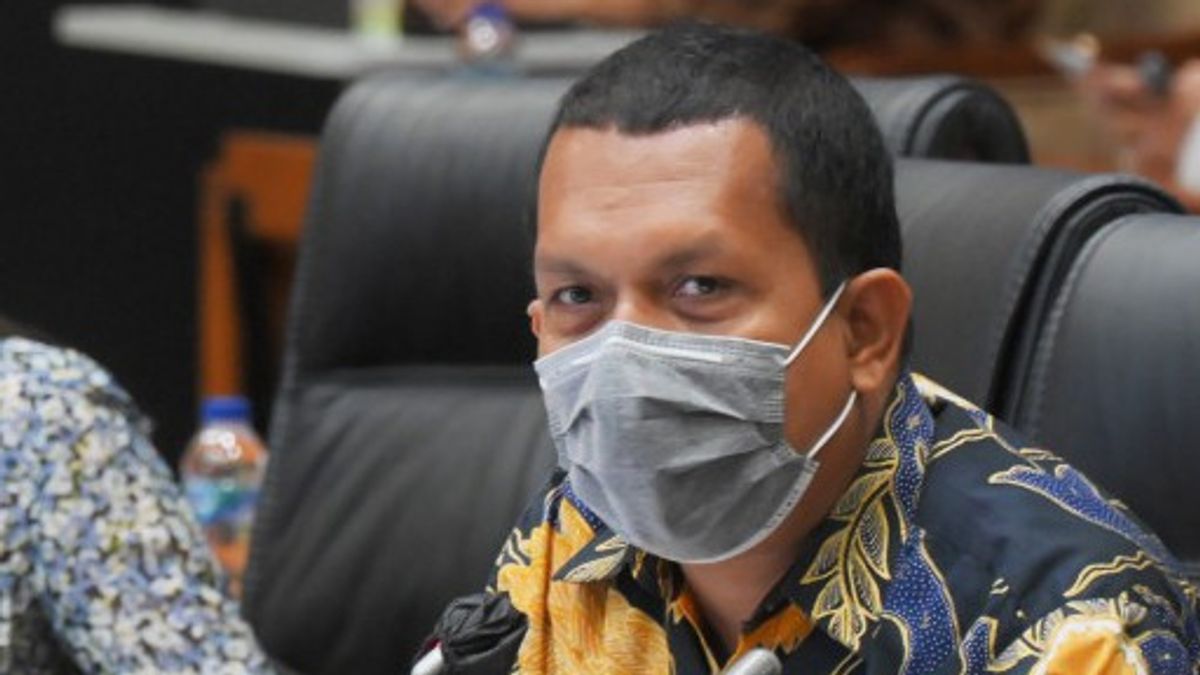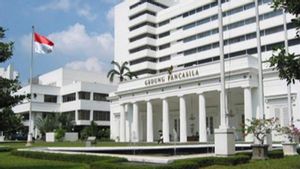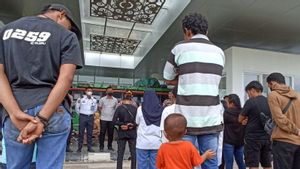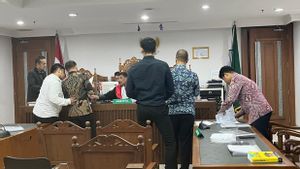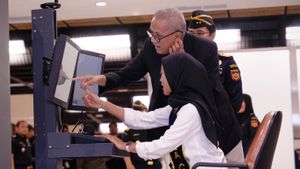JAKARTA - Commission IX of the House of Representatives supports the Government's plan regarding a moratorium on sending Indonesian Migrant Workers (TKI) to Malaysia following the violation of the agreement to recruit workers from Indonesia.
"Malaysian authorities continue to violate the agreement to recruit workers from Indonesia by using several recruitment channels", said Deputy Chairman of Commission IX of the House of Representatives, Melki Laka Lena, Friday, July 15.
In fact, Malaysia and Indonesia had previously agreed to use a one-channel system for the placement of workers. Melki considered that the violation would harm the cooperation between the two countries.
"And of course, it has the potential to violate workers' rights and threaten the safety of Indonesian workers working in Malaysia", said Melki Laka Lena in a written statement.
In April 2022, the Government of Indonesia through the Ministry of Manpower signed a Memorandum of Understanding (MoU) on the placement and protection of Indonesian migrant workers in the Domestic Sector in Malaysia. Five criteria must be met by the Malaysian side in hiring Indonesian Migrant Workers.
One of the criteria in the MoU is to ensure that the implementation of the One Channel Placement System (SPSK) is effective as the only legally recognized mechanism for recruiting, placing, and employing Indonesian migrant workers in Malaysia. The agreement also ensures that other labor recruitment mechanisms are not allowed.
"Malaysia should respect the agreement between the two countries, which was made to improve the protection of Indonesian workers", said Melki.
SEE ALSO:
The Commission IX of the House of Representatives, in charge of Manpower affairs also urged the Government to take a firm stand against Malaysia for this violation. Because the methods used by the neighboring country, according to Melki, will make it difficult for the State to monitor and protect migrant workers.
“Moreover, so far there have been many cases of humanitarian tragedies experienced by migrant workers in Malaysia. The rights of migrant workers to obtain wages according to the provisions and protection in Malaysia are also still far from being burned", said the legislator from the East Nusa Tenggara (NTT) II electoral district.
Melki reminded Malaysia depends on millions of workers from other countries because the country is facing a labor shortage. Especially for the plantation and manufacturing sectors which are not in demand by the local population most of them take workers from Indonesia, Bangladesh, and Nepal.
"Malaysia should understand the needs of workers from Indonesia by complying with existing regulations", said Melki.
According to data from Bank Indonesia (BI) and the National Agency for the Placement and Protection of Indonesian Migrant Workers (BNP2TKI), in 2021 there will be around 1.62 million people or 50.03% of the total Indonesian migrant workers residing in Malaysia.
Malaysia has also become a placement country for Indonesian migrant workers with the largest number of complaints reaching 403 or around 23.7% of the total 1,702 complaints in 2021. Meanwhile, BI recorded remittances (remittances) from TKI abroad amounting to USD 2.28 billion or the equivalent of IDR 33 trillion (exchange rate of IDR 14,496) in the second quarter of last year which contributed about 10% of the State Budget (APBN) value.
Melki emphasized that the struggle of Indonesian workers must be proportional to the protection of the state. Commission IX ensures that it will continue to monitor the welfare of Indonesian migrant workers.
"The services of the great foreign exchange heroes need to be balanced with the protection of migrant workers, especially those who work in Malaysia", he appealed.
"Therefore, the government needs to take strategic steps to protect migrant workers", concluded Melki.
The English, Chinese, Japanese, Arabic, and French versions are automatically generated by the AI. So there may still be inaccuracies in translating, please always see Indonesian as our main language. (system supported by DigitalSiber.id)
